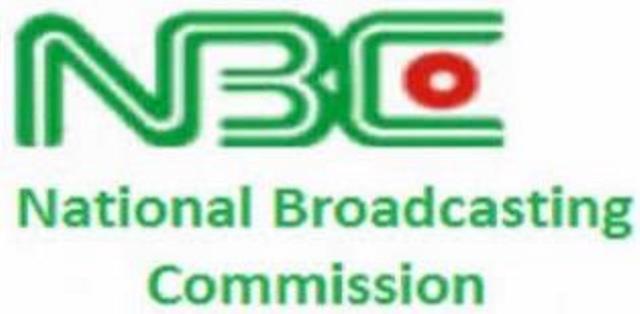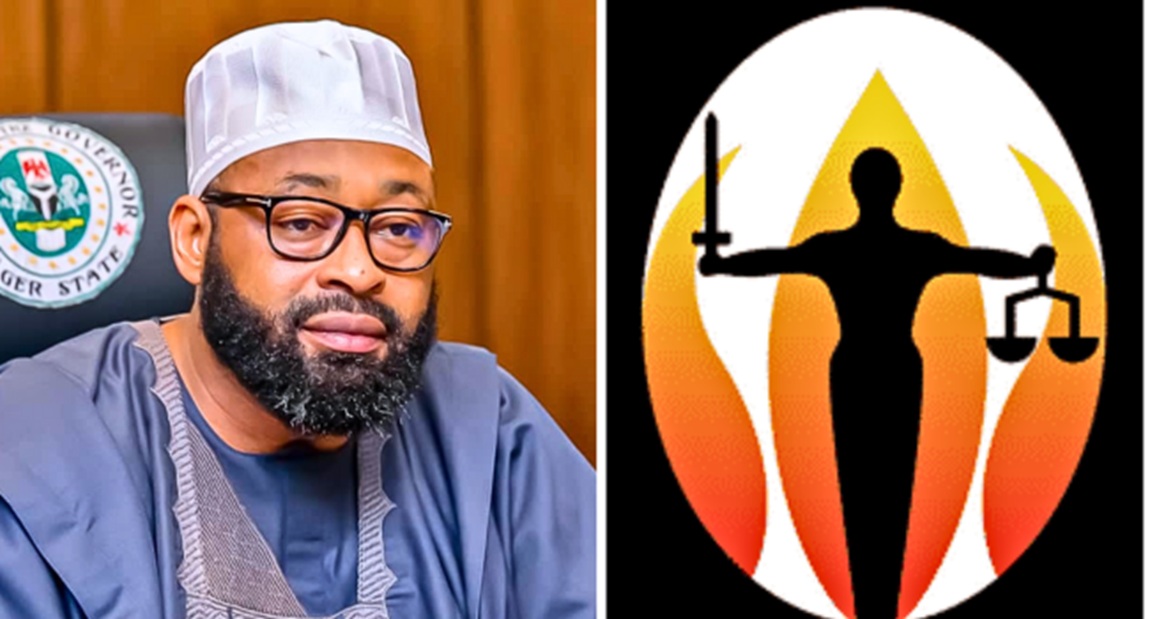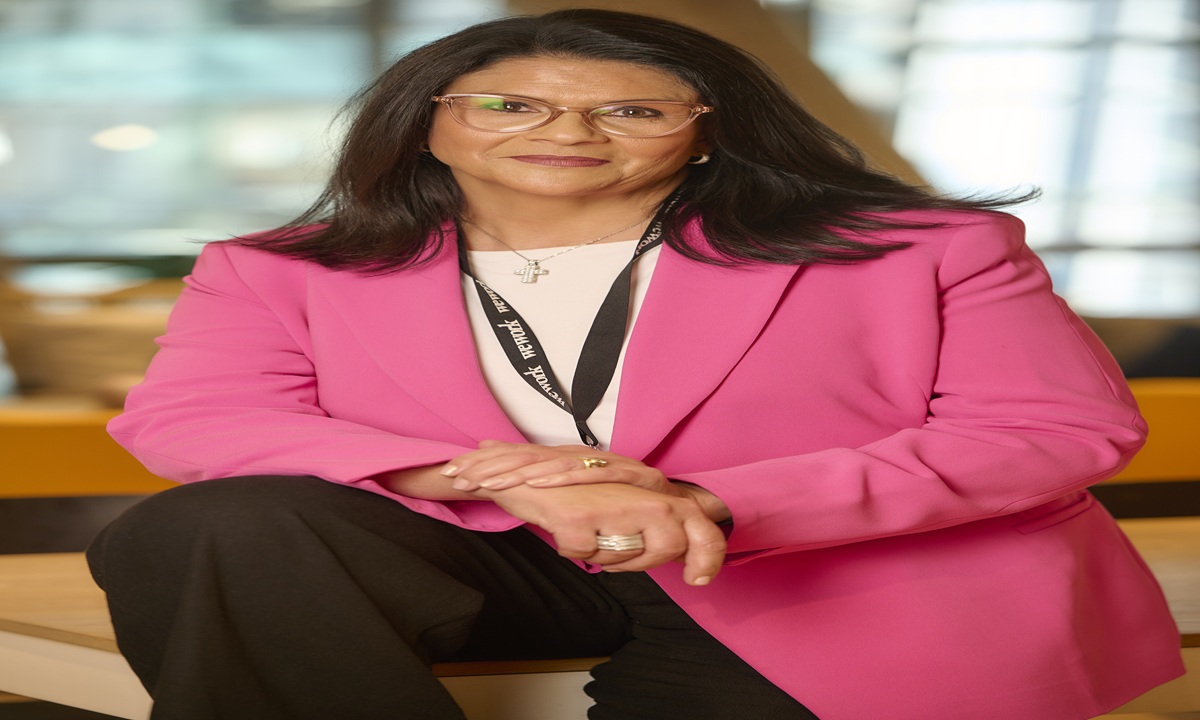Broadcasting
NBC Fines Arise TV, TVC N2m over Breach of Broadcast Code

National Broadcasting Commission (NBC) has fined Arise News TV and TVC N2 million each for allegedly breaching the national broadcasting code in the countdown to the 2023 general elections.

Balarabe Shehu Ilelah, director general, NBC, imposed the fine in separate letters he wrote to the managements of the affected organisations yesterday.
The NBC ordered that the fines should be paid within two weeks of the receipt of the letters or the sanction would be graduated.
In its letter to TVC, the commission accused the television station of breaching sections of the code.
NBC accused TVC News of allowing derogatory and unfair comments to be broadcast on its station.
Ilelah said the worrisome trend had become a house style on TVC.
It said the unprofessional broadcasts by TVC include the Joint media Directorate of the APC Presidential Campaign Council press briefing where Festus Keyamo said; “Obasanjo and Atiku run a criminal enterprise, an empire of fraud in Abuja…” and alleged that some goons of Atiku Abubakar were planning to eliminate Michael Achimugu, a whistleblower.
It also excoriated TVC News for not giving equal news coverage to other political parties in all their news.
In the letter to Arise TV, NBC said there were infractions in sections of the code.
The commission cited the broadcast of the presidential campaign rally of PDP in Delta, the interview with Na’jaatu Muhammed, former APC campaign director, and broadcast of the PDP presidential campaign rally in Sokoto.
It slammed Arise Global Media for giving prominence to unfair content which are glamorized on Arise news programme “What is Trending”.
In the letter to Arise TV, Breach Of The Nigeria Broadcasting Code: A Sanction, NBC said it monitored the consistent breach of the Nigeria Broadcasting Code over a period of time during the countdown to the 2023 General Elections.
It said it was a worrisome trend and had become a house style on the channel that enjoys national coverage.
It said it had gotten so unprofessional that unfair content trending on social media were given prominence and unethically glamorised on Arise news programme “What is Trending”.
The commission said some of such unprofessional broadcasts include; “On the 24th of January, 2023, between 1.00 pm 2.27 pm, Arise TV aired Presidential campaign Rally of PDP which was held in Delta State, replete with unfair remarks and mockery of the APC presidential Candidate by DINO Melaye. Mr. Melaye sang a song “…hand dey shake, leg dey shake, baba wey no well, e dey shout emilokan” he further went on to fall down demonstrating the frailty of the APC presidential Candidate. Arise TV did not only air the programme but repeated the distasteful clip of Dino Melaye in a mockery of the APC Presidential candidate in another programme anchored by Ojy Okpe What’s Trending. The Presenter and her Colleagues had a good laugh over such unfair treatment of one another.
“On the 26th January 2023, at 9.40 am, during the programme Morning Show, a guest, Na’jaatu Muhammed described the Presidential Candidate of APC, Senator Bola Ahmed Tinubu as mentally deranged without caution from the anchor. The Guest had a field day with vituperations against the Presidential Candidate of the APC. She referred to him as Senile.
“On 31-01-2023 at 3:30 pm, during the broadcast of the PDP Presidential Rally in Sokoto State, Dino melaye referred to the Vice Presidential Candidate of APC, Kashim Shettima as GCOB, meaning Grand Commander of Bandits.
“During the same Campaign, PDP Presidential chieftain, Dino Malaye said, “we should be happy that our candidate’s hands don’t shake, his legs don’t shake and he doesn’t have a bell that rings in his head” he further said, “if APC come for campaign, sing a song after them saying, APC are bed-wetters…” then he said again, “…his name is not Bola, his name is bola” (the difference is in pronunciation, later meaning dustbin).
“Hajiya Naja’atu in the same broadcast said, “We are not going to vote for hypocrites, the one that lied that he is a Muslim, but he doesn’t know how to recite the suratul fatiha. We are not going to vote for an illiterate that doesn’t know anything, if people insist on voting him then they should also get ready to allow him lead them in prayers…”
In the letter to TVC, NBC said the station said it has gotten so unprofessional that hate speech, inflammatory, derogatory, and unfair comments are been broadcast on the station.
For the avoidance of doubt, NBC listed some of such unprofessional broadcasts as;
“On 06/01/23 at 12:29 PM, the Joint Media Directorate of the APC Presidential Campaign Council made the following comments while briefing the media. Festus Keyamo: “…Obasanjo and Atiku run a criminal enterprise, an empire of fraud in Abuja. At the same time that Ahmed Bola Asiwaju was toiling hard, beautifully, and meticulously to rebuild Lagos, 2 criminals were stealing money in Abuja at the time…they both stole from the SPV account at that time.”
Speaking about the whistleblower, Micheal Achimugu, he said, “We suspect that some goons of Atiku Abubakar are planning to eliminate him and members of his family. In fact, my big brother FFK actually hinted me about something like that yesterday…
“On 24/01/23 at 03:39 PM, during the APC Presidential Rally in Abia State. The APC Presidential Candidate BOLA AHMED TINUBU after telling the public to vote APC under the symbol of broom, he went on to make the following comment “… You know what you do with the rest of them? They are like lizards, cockroaches, and mosquitoes. Just take the broom, wipe them off”
“On 31/01/23 at 02:37 pm, during the All Progressives Congress (APC) rally which held in Anambra State. The party’s Presidential Candidate, Bola Ahmed Tinubu also made the following remarks; “…When you hear Atiku used the word Muslim and say ‘Wallahi, Talahi’, you know what is in his heart? “na lie I lie”. Anytime you hear Atiku say Wallahi Talahi, just reply him say, na lie you lie.”
“… The man who left here, he calls himself Peter Obi. We read in the Bible, that before cock crows 3 times, he will deny Jesus Christ. He denied, so how can he keep a promise to you if he cannot keep a promise to God.
“On 30/01/23 at 03:50 PM during the APC Presidential Rally in Akwa Ibom State, the presidential candidate of the APC, Bola Ahmed Tinubu made the following unfair comment against the PDP Presidential Candidate, Atiku Abubakar, and the Governor of Akwa Ibom State, Udom Gabriel Emmanuel. Thus: “…Who rescued him from Obasanjo who wanted to roast him like Goat Meat?” Speaking against Emmanuel Udom, “he said “…That boy wey bring Atiku here, Wey dey call himself Governor tells him Enough is Enough, He lives in my backyard in Lagos if no be because we be one, I’ll drive him home…the biggest palace that he build I’ll just put lizard and pigeon and scorpion there if not because you begged me”.
The commission added that monitoring also indicated that TVC News does not give equal news coverage to other political parties in all their news.
Broadcasting
SERAP, Editors Sue Niger Governor over Badeggi FM Shutdown Threat

Socio-Economic Rights and Accountability Project (SERAP) and the Nigerian Guild of Editors (NGE) have filed a lawsuit against Umar Bago, Niger State Governor, and the National Broadcasting Commission (NBC) over what they described as “the ongoing intimidation” of Badeggi FM Radio, Minna, and the threat to shut down the station.

This was contained in a statement on Sunday by Kolawole Oluwadare, deputy director, SERAP, accusing NBC of failing to stand in defence of the local station.
PUNCH Online had reported that Bago ordered the closure and the revocation of the licence of Badeggi Radio 90.1 FM in Minna over alleged public incitement.
However, in suit number FHC/L/CS/1587/2025, filed last Friday at the Federal High Court, Lagos, SERAP and NGE are seeking to determine “whether by Section 22 of the Nigerian Constitution 1999 (as amended) and section 2(1)(t) of the NBC Act, the NBC has the legal duty to protect Badeggi FM from the ongoing intimidation from the governor.”
They are also seeking “an order of perpetual injunction restraining the Niger state governor and NBC from further harassing, intimidating and/or threatening to shut down Badeggi FM radio, revoke its licence and profile the station’s owner.”
The groups argued, “The ongoing intimidation and threat by Mr Bago to strip Badeggi FM station of its licence, further threat to demolish the station’s premises and profile its owner is unlawful and a violation of the rights to freedom of expression, access to information, and media freedom.”
They described allegations of inciting violence against the station and its owner as “vague, unfounded and unsubstantiated and apparently made to silence the radio station.”
The suit, filed on behalf of SERAP and NGE by lawyers Kolawole Oluwadare, Oluwakemi Agunbiade, and Andrew Nwankwo, read in part, “The media plays an essential role as a vehicle or instrument for the exercise of freedom of expression and information – in its individual and collective aspects – in a democratic society.
“Intimidating, harassing and silencing critical or dissenting voices under the guise of vague and unsubstantiated national security concerns is a fundamental breach of the Nigerian Constitution and Nigeria’s international human rights obligations.
“The ongoing intimidation and harassment of Badeggi FM and its owner is capable of discouraging participation of the press in debates over matters of legitimate public concern ahead of the 2027 general elections.”
SERAP and NGE are therefore asking the court for the following reliefs, “A declaration that by the combined provisions of Section 22 Nigerian Constitution and section 2(1)(t) of the National Broadcasting Act, the NBC is obligated by law to protect Badeggi FM station and other broadcasting outlets in Nigeria from undue interference from unauthorised persons or entity.
“A declaration that the failure and/or neglect of the NBC to protect and defend the independence of the radio station against arbitrary executive interference constitutes a breach of its statutory duty to ensure fair, independent, and lawful broadcasting practices in Nigeria.
“A declaration that the ongoing intimidation and threat issued by Mr Bago to strip Badeggi FM station of its operational licence and further threat to demolish the station’s premises is unlawful and a violation of the rights to freedom of expression, access to information, and media freedom.
“A declaration that the threat issued by the Bago to strip Badeggi FM radio station of its operational licence encroaches upon the statutory powers of the NBC as provided for under section 2 of the National Broadcasting Commission Act.
“An order of perpetual injunction restraining the governor and NBC, its agents and privies from harassing, intimidating and/or threatening to revoke the operating licence of Badeggi FM station or any other broadcasting outlet in Niger State.”
It was said that no date has been fixed for the hearing of the suit.
Broadcasting
Amaarae Crowned Spotify’s EQUAL Africa Artist for August

Spotify has named Ghanaian trailblazer Amaarae as the EQUAL Africa artist for August, spotlighting her as one of the continent’s artists who continues to push creative and cultural boundaries with every beat, lyric, and look.

Amaarae, born Ama Serwah Genfi, raised between Ghana and the U.S.A often pulls her musical inspiration from the cultures and genres she grew up with. She has consistently pushed the boundaries of sound and identity, with her unique fusion of alternative, pop, R&B, and Afrobeats cementing her place as a singular voice in modern music.
Her musical journey took a turn in a computer lab in Ghana in 2009, where she taught herself to make beats on a cracked version of FL Studio. That moment sparked the fire for a career that would go on to produce game-changing projects like “The Angel You Don’t Know” and global hits such as “SAD GIRLZ LUV MONEY”.
Amaarae’s inclusion on Spotify’s Global Impact List for the first half of the year, highlighting the most-exported Ghanaian songs, was no surprise. She has become a symbol of how African music is travelling further, faster, and louder than ever before.
With her latest album BLACK STAR she returns to her Ghanaian roots with bold energy, crafting what she calls a “rallying cry for youth culture around the world. This album is bringing the alternative community to the forefront and being fearless about that.”
“I navigate the music world with balance, willpower, and strength. The challenges are real, don’t get me wrong, but I put my blinders on, lock into tunnel vision, and get to work. And when I come across another woman on the journey, especially a Black woman, I do my best to share knowledge, create opportunities, and lighten the load where I can,” says Amaarae.
As part of Spotify’s EQUAL programme, which amplifies women’s voices worldwide, Amaarae joins a growing list of African women shaping the future through sound and self-expression.
“Amaarae embodies the spirit of boundary-pushing creativity that EQUAL stands for,” says Phiona Okumu, Spotify’s Head of Music for Sub-Saharan Africa. “Her artistry is bold, distinct, and unapologetically authentic – qualities that continue to inspire a new generation of artists across the continent and beyond.”
We sat down with Amaarae to learn more about her and her music:
1. What is that one surprising thing your fans might not know about you?
Amaarae: I’m one step away from being legally blind! My vision is a -7 and I have astigmatism!!
2. When did you realise that making music was in your destiny and what is your WHY for pursuing this craft?
Amaarae: When I moved back home to Ghana in 2009, I was learning how to make beats and record myself at the back of the computer lab. Someone had installed a cracked version of FL.
3. Which African songs or artists did you grow up listening to?
Amaarae: The list goes on and on. Daddy LUMBA (RIP), Terri Bonchaka, MzBel, Abrewa Nana, Obrafour’s legendary album Pae Mu Ka, Sarkodie, Kwadwo Antwi. I could go all day.
4. To someone who has never heard your music, how would you describe the sound, tone, and style?
Amaarae: Let’s encourage listeners to be curious and adventurous! If you’re reading this and you’ve never heard my music, I dare you to go listen! And tell me how YOU would describe my sound.
5. Any advice for someone dreading following their dreams?
Amaarae: The regret does more damage than the effort.
Broadcasting
Humans + Machines: Building the workforce of the future

By Ursula Fear, Senior Talent Programme Manager | Salesforce
Is AI coming for your job, or is it already working beside you? As its use becomes more routine, artificial intelligence is looking less like a threat and more like a teammate: answering queries, making decisions, chasing leads, processing invoices, and drafting content around the clock.

Ursula Fear, Senior Talent Program Manager, Salesforce
This new class of digital labour is changing how teams function, how targets are met, and how people spend their time at work. From now on, almost every job, team, and company will involve AI agents – systems that can analyse vast datasets, apply human-like reasoning, and act independently. Their presence is set to influence workflows, increase productivity, support innovation, and redefine roles across the organisation.
Rather than replacing people, AI is tilting the workload. Salesforce research shows that 23% of HR teams plan to redeploy employees into roles that make better use of their uniquely human strengths. At the same time, agentic AI adoption is projected to surge by 327% over the next two years (from roughly 15% adoption today to about 64% by 2027).
This shift is tied to anticipated productivity gains of 30% per employee and labour cost reductions of 19%, equating to about $11,000 in savings per employee annually, based on Organisation for Economic Co-operation and Development (OECD) wage averages. Rather than replacing people, organisations are preparing to reskill and redeploy workers, enabling humans to focus on higher-value roles that emphasise creativity, strategy, and interpersonal skills.
A recent Gartner poll further found that 95% of customer service teams intend to retain human agents to help define and guide the role of AI, reinforcing the value of a “digital first, not digital only” approach. Gartner further says that by 2027, half of the organisations that planned to significantly reduce their customer service workforce will abandon those plans, highlighting the limits of going fully “agentless”.
For African countries, the rise of digital labour presents an opportunity to build modern, inclusive workforces without being bound by outdated development models. But realising this potential depends on sustained investment in skills training, digital infrastructure, and equitable access to AI tools.
Train for tomorrow
Africa has the world’s youngest population. It’s bursting with entrepreneurial energy. But many young people still don’t have access to the tools and skills that will define the next era of work. If the continent wants to lead in the digital labour revolution, it should act now by investing in digital infrastructure, prioritising skills development, and forging partnerships that make future-focused training widely accessible.
Yes, the skills gap is real and broadband internet is still a luxury in many communities. But on the upside, AI training doesn’t require a university degree. Much of it is free, online, and accessible to anyone with a smartphone and a curious mind.
That opens the door to governments, educators, businesses, and civil society to step up to update school curricula, expand digital infrastructure, and support public-private training partnerships. All of this matters: not just for economic growth, but for social inclusion, too.
If these foundations are put in place, African countries could not only meet the needs of their growing population but also leapfrog outdated development models.
From entry-level to in-demand
When AI begins to handle the simpler tasks, it’s easy to worry about what’s left for those starting out. Entry-level jobs aren’t disappearing though. Instead of doing routine work, newcomers will now need to build skills in oversight, collaboration, and using AI tools effectively from day one. The ladder still exists; it just starts in a different place.
This will require a different kind of training – not just technical know-how, but in soft skills like empathy, adaptability, ethical judgement, and communication, which are all human traits that help teams thrive.
AI’s presence in the workplace may be concerning, with reports of job cuts due to its adoption (here, here, here, and here), but all is not as it seems.
Research suggests a more balanced perspective: One of the most comprehensive studies, from the National Bureau of Economic Research, tracked 25,000 workers across 7,000 Danish firms using AI chatbots. It found no significant changes to jobs, wages, or working hours. Productivity rose by around 3%, without leading to layoffs.
The St. Louis Fed found something similar. Based on large-scale surveys in the US, researchers reported one in four workers now use generative AI weekly, saving on average just over two hours a week. Spread across the entire labour market, that translated into a 1.1% productivity gain. Crucially, there was no sign this efficiency came at the cost of jobs.
Adding to this, a 2024 study by Mäkelä and Stephany analysed over 12 million US job listings and revealed that demand is surging for “AI-complementary” skills such as resilience, teamwork, digital literacy, and analytical thinking. These are the very human capabilities that help people work effectively with AI. The study found AI-focused roles are nearly twice as likely to list these skills, and they command wage premiums of 5–10%. Even more telling: the positive impact of these complementary skills outweighs the substitution effects of AI by up to 70%.
These findings all suggest that AI isn’t replacing workers; it’s helping them work smarter and more efficiently. To thrive in this blended future, we need to prepare today, by building the right skills, expanding access, and embracing AI not as a threat, but as a partner in progress.
Because the future of work won’t be entirely human, nor entirely automated – it will be a blend of both.

 E-Financial3 days ago
E-Financial3 days agoNBS Reports ₦6.72 Trillion VAT Haul as Tax Reforms Pay Off

 Telecom3 days ago
Telecom3 days agoMTN Nigeria Rolls Out Network-as-a-Service and Signs First MVNO to Drive Industry Efficiency

 News3 days ago
News3 days agoNo More Leaks: FIRS Slaps ₦5m Fine on Info Disclosure

 Telecom2 days ago
Telecom2 days agoAirtel, Vodacom sign Network Infrastructure Agreement to Drive Digital Inclusion

 Telecom2 days ago
Telecom2 days agoNCC Bars Ex-Officials from Joining Telecom Firms for 5 Years

 E-Business2 days ago
E-Business2 days agoFirm Shares Tips for Safer Remote Working

 Telecom3 days ago
Telecom3 days agoAirtel Money Africa Partners pawaPay for Seamless International Remittances Across Africa

 E-Financial3 days ago
E-Financial3 days agoFIRS Unveils e-Invoicing, Electronic Fiscal System for Large Taxpayers

























